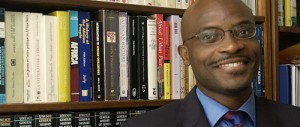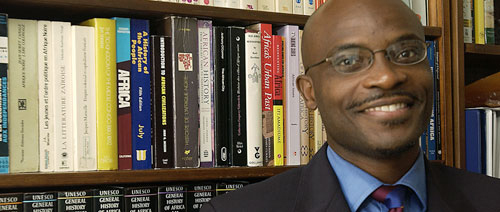By Nicholas Dean/reporter

Congo is an essential to humanity, a history professor told SE students April 23.
Didier Gondola, history department chair from Indiana University-Purdue University Indianapolis, presented Congo Square to Congo Digital: Why Congo Matters.
“Congo has always been the key to our humanity,” he said. “Because of that, Congo has been the victim of global capitalism and exploitation throughout its history.”
The movie Avatar has striking similarities to what is going on in the Congo, Gondola said. Countries such as Rwanda or Zimbabwe came over to Congo to take its natural resources.
“You would think that James Cameron is using Congo as a template for the movie,” he said about Avatar.
Congo’s resources are important to the world, Gondola said.
“Congo played a big part in the second industrial revolution by supplying Europe with rubber,” he said. “Congo was the place where rubber was collected.”
Congo was the largest supplier of rubber at that time. European soldiers would come into Congo villages and demand villagers go into the forest and collect rubber or the soldiers would “sever their hands,” Gondola said.
Congo is known for its many other minerals as well: copper, gold, manganese, cobalt, uranium and coltan.
Uranium was discovered in Shinkolobwe in 1922. Union Miniere, a Belgian company, supplied the United States with 1,200 tons of uranium to construct the atomic bombs used in Hiroshima.
“The impression that we have as Congolese people is that every time a new mineral is discovered, it is likely to be in Congo,” he said, “and not just anywhere in Congo but in the eastern parts.”
Coltan is a widely used mineral found in Congo, which is now part of the “digital revolution,” Gondola said.
He then asked the audience, “What is the digital revolution?”
When no one answered, he said coltan is used in tablets, cellphones, computers and airbags. Gondola pointed to students in the back using their phones.
“You have coltan in your cellphones,” he said.
Most of the audience members turned around to see whom he was talking about and laughed.
“Well, you do,” he said. “This is why Congo matters.”



























